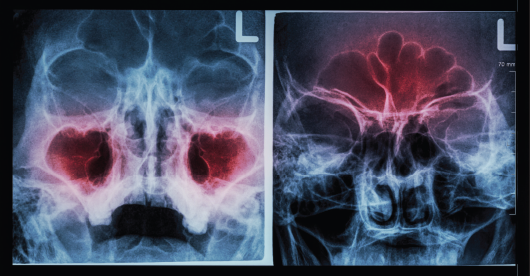What is the relationship between the frequency of acute chronic rhinosinusitis exacerbations (AECRS) and the degree of asthma control in asthmatic CRS patients?
Sleep Dysfunction a Strong Indicator of ESS Election for CRS
A look at the prevalence, timing, and potential baseline clinical risk factors associated with patients with medically refractory chronic rhinosinusitis electing endoscopic sinus surgery.

Refractory Chronic Rhinosinusitis: Medical and Treatment Options
Advanced planning can keep your income, and your clinical practice, afloat
CRS Impact on Patients with Cystic Fibrosis Not Well Known
Currently there is a lack of a validated disease specific, quality of life instrument, available to assess the impact of CRS on the pediatric CF patient population
Antibiotics Show Limited Effectiveness in Eosinophilic CRS-Associated Inflammation
The use of antibiotics without independent anti-inflammatory properties have limited efficacy in patients with eCRS
Depression Primary Driver of Lost Productivity in Patients with CRS
Patients with chronic rhinosinusitis who are depressed are more likely to miss days of work or school than those without depression symptoms
Polyp Recurrence Still Common After ESS for CRS with Nasal Polyposis
Polyp recurrence is still common after ESS, with control of polyps up to 18 months found in approximately 60% to 70% of patients
Taste Receptor T2R38 Plays Key Role in Biocidal Defense Against CRS
When stimulated by AHLs, T2R38 elicits calcium-dependent NO production that increases ciliary beat frequency and mucus clearance.
QOL Comparison Between Surgeons Following ESS Possible
Comparison of surgeon outcomes of ESS is feasible, but must take into account a number of baseline patient characteristics
Intranasal Corticosteroids Improve Asthma Symptoms in CRS
For patients with asthma and CRS, the addition of intranasal corticosteroids improved asthma symptoms as well as FEV1